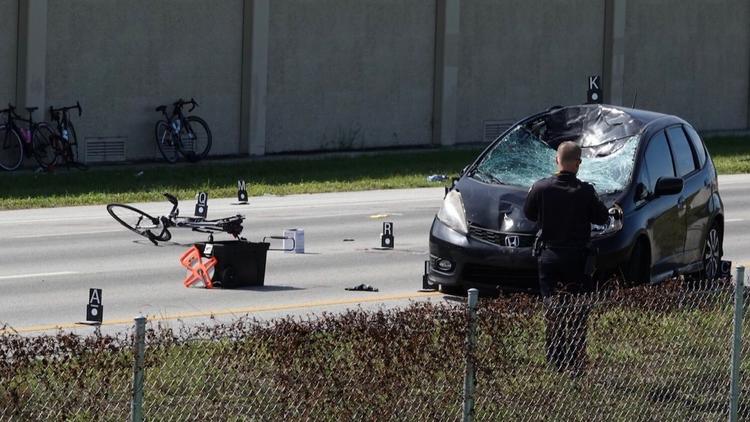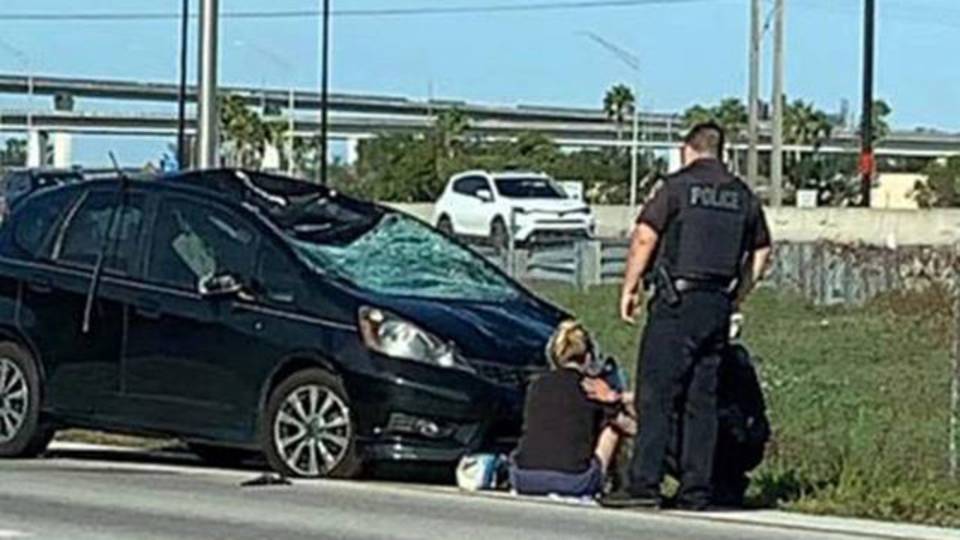The Florida Accident Report Privilege

I always preach it!
If you have known me for more than 10 seconds, you know I always preach, “Do Not Talk to the Police!” That is a standard posture in most criminal cases and investigations where you may end up as the subject of the investigation. The Florida Accident Report Privilege affects this standard rule.
There are times, however, that you may come into contact with a police officer and need to speak directly to them. One such time is if you had an automobile accident.
Why do we have the Florida Accident Privilege?
Fortunately, Florida has something called the Accident Report Privilege. The Accident Report Privilege is designed to protect drivers involved in accidents. The Privilege protects a driver when providing information necessary to complete the Florida Crash Report.
Most of the information contained in the Florida Crash Report is for the benefit of the insurance companies in evaluating claims. The Florida Legislature has deemed that information critical, so the Accident Report Privilege was created, and that is a good thing.
Back in the day, when the police investigated an accident, it did not matter what they asked you or how they asked you, the information you provided could be used against you. The Accident Report Privilege changed all of that. So let us say that a police officer is investigating a traffic accident and he suspects you are DUI. Now, theoretically, the officer must conduct the accident investigation separate from the DUI investigation.

So how do they conduct these so called separate investigations? Police officers are now trained to gather the information for the crash report, then, inform the driver that the accident investigation has concluded, and a DUI investigation has now begun. If you missed it, this is a big clue to shut up! Does it really happen that way? Of course not, most officers continue to comingle the investigations.
The bottom line is, anything you say for the accident report cannot be used in a trial against you. But who is to say your statement was made as part of the accident investigation? The police officer, of course.
How does it work?
When involved in an accident, your best bet is to provide only the essential facts of the accident. This is in addition to your driver’s license, vehicle registration, and insurance card. At times, you may be unsure of what stage of the investigation or what investigation is being conducted. Simply ask the officer to clarify or preface each statement with something like ” It is my understanding that you are conducting an accident investigation, so…”
Again, less is best. The less you say, the less trouble you can get yourself into. “I was going north on Walnut Street, the other driver ran a stop sign and hit my car.” Be that brief. Do not hang yourself!
I’ll add a caveat here, the above applies to fender bender accidents only. If you are involved in a crash with serious bodily injury or death, things change. Death is different, very different. In a serious bodily injury or fatal accident, provide the officer with your license, registration, and insurance card. Tell the officer you are going to speak to your lawyer before giving any statement. It is vitally important that you understand this and maintain this posture. Call your lawyer immediately.
If your lawyer will not come out to the scene of a fatal accident that you are involved in, call me. I will come out to your scene.
Follow us on:
Twitter: @pjmcgeehanlaw
Facebook: https://www.facebook.com/pjmlawyer/
Instagram: @the_magic_city_lawyer
LinkedIn: https://www.linkedin.com/in/patrick-m…
Join our Facebook Group, “Ask a Florida Divorce Lawyer at:https://www.facebook.com/groups/22250…
Find us on the web at:
www.miamidomesticviolencelawyer.com
Email us at: patrick@pjmlawyer.com
No part of this video is to be considered legal advice. This video is for educational purposes only. No attorney/client relationship is formed from watching this video.
Please subscribe to our YouTube channel, “Your South Florida Lawyer, Patrick J. McGeehan,” for more videos explaining legal concepts in easy to understand terms.
Return to our blog!
